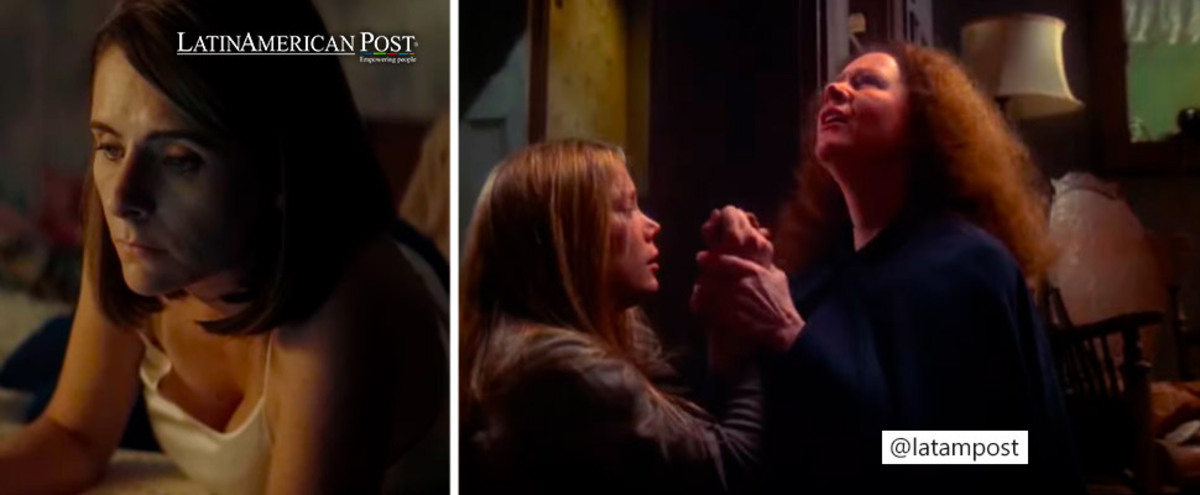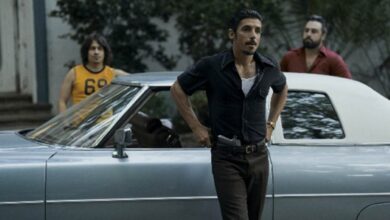Mother’s Day: Motherhood in Horror Movies
On Mother's Day, we celebrate the idealization of this figure, which encapsulates a challenging and terrifying experience. Horror films have explored the fears and frustrations that women face in this process.

Photos: YT-Canibal Cinema, YT-MGM
LatinAmerican Post | Juan Andrés Rodríguez
Escucha este artículo
Leer en español: Día de la madre: la maternidad en el cine de terror
"There is nothing more powerful than a mother's love" is a typical phrase that aims to celebrate the idealized maternal figure in the religious canon based on self-denial and sacrifice, the idea of a woman who finds fulfillment in the role that is her "destination." This idea can sometimes be, according to experience, a prison, a duty that implies an immeasurable responsibility. These impossible-to-reach standards and social condemnation for the slightest mistake can make motherhood a terrifying experience that cinema knows how to exploit. We tell you a little more about it today, Mother's Day.
The cinema took this figure as central to the horror genre, creating a new canon showing this reality's dense, lonely, and disturbing facets. Overprotective, possessed, abusive, vengeful, repentant mothers and women who flee from motherhood, stories that shape a new myth of "the bad mother," which through the supernatural allows us to explore and, why not, give new meaning to this role.
Pregnancy and Body Horror
Pregnancy is a complex process with a heavy physical and emotional load on the woman's body, which can even endanger her life. Therefore, it is not surprising that it is a recurring situation in the "body horror" subgenre, which, based on surreal images, represents the extremes of pregnancy and how traumatic that experience can be.
While the male gaze on this situation can go to extremes of the graphic, like the cesarean section scene in Ridley Scott's "Prometheus" (2012), some women have focused their films on delving into the effects and feelings that this causes. The trip, especially when it is unwanted. "Prevenge" (2016) by Alice Lowe and "Titane" (2021) by Julia Ducournau are two great examples of this feminist appropriation. These are stories of women fighting for control over their bodies and the will to act on their interests, which go against what is expected of a mother.
Latin American cinema also explored this scenario. “Huesera” (2022), the directorial debut of Michelle Garza Cervera, incorporates elements of Mexican folklore in the story of a woman attacked by a sinister entity during her first pregnancy.
Maternal Instinct
"Being a mother is the greatest joy" is another hackneyed phrase about the expectations of the mother's work in the first months. The idea that being a mother is instinctive is prevalent and that if the mother fails to satisfy the baby's needs, she dies in something "basic and natural." That maternal instinct is questioned by filmmakers in works like Roman Polansky's "He Drinks from Rosemary" (1968) and "Mother!" (2017) by Darren Aronofsky, in which its protagonists face strangers who want to take control over their children's upbringing, alienating them and manipulating their perception of their abilities to assume that role.
Demonic Parenting
A scene of true terror in everyday life is watching a mother trying to control her son's tantrums. Tears, screams kicks, and insults; reason is not enough to negotiate, and authority is constantly challenged. Once again, the cinema takes advantage of this reality to create great works such as "The Exorcist" (1973). In William Friedkin's classic, there is an entertaining and chilling allegory of a mother's struggle with the will of her daughter, represented in the demonic figure. Although valuable for its cinematic quality, the film reduces the mother's agency in this situation.
Again, it is the directors who transform the conventions of the genre. This is the case of Jennifer Kent in "El Babadook" (2014), in which Amelia, a widowed mother exhausted from the work of raising her son alone and without time to process her grief, is stalked by a demon that lives in her home.
Some films reverse the roles of daughters facing regretful mothers with their decisions, such as the adaptation of "Carrie" (1976), directed by Brian de Palma. Women who did not want to assume that position, whose dissatisfaction with life makes them engage in violent behavior or attachment towards their children, who recognize the sinister sides of forced motherhood, which leads to situations of abuse.
The Pain that has No Name
They say nothing compares to the pain of losing a child, a void with no name. In the cinema, there are many ways to face this duel, like the mother seeking revenge in "Friday the 13th" (1980) or the one who, in agony, refuses to admit that loss like the ingenious "Barbarian" (2022).
Once again, Latin American cinema demonstrates the potential of the genre to address realities in the region, as Jayro Bustamante did with "La Llorona" (2019), which appropriates the popular myth to address forced disappearance and restorative justice.
Horror cinema is a door to explore the facets of motherhood and deny that terrifying idealization of a complex social role, which, thanks to the vision of new authors, became a space to challenge the "should be" of women. It is exciting how Latino filmmakers venture into this genre and take advantage of it to subvert expectations about the region's cinema and build a bold social critique of our reality.




